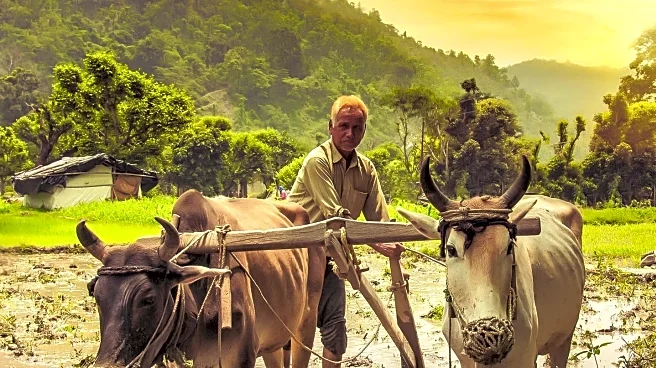What's Happening?
Bangladesh Agricultural University (BAU) has initiated a three-day training workshop focused on climate-resilient agriculture, particularly in pest management. The event, supported by the Food and Agriculture Organization (FAO) and the Department of Agricultural Extension (DAE), aims to strengthen the capacities of government counterparts and stakeholders in Asia. The training, held at the Professor Golam Ali Fakir Seed Pathology Centre, was inaugurated by Prof Dr Masum Ahmed, Acting Dean of the Faculty of Agriculture. Participants, including dealers, deputy assistant agriculture officers, and students, will receive hands-on training on pest management strategies, nature-based solutions, and sustainable agricultural practices. The initiative is part of an FAO-assisted project to increase productivity and build climate-resilient agriculture through nature-based solutions.
Why It's Important?
The training workshop at BAU is crucial in addressing the challenges posed by climate change to agricultural production systems. By equipping participants with science-based knowledge and sustainable pest management techniques, the initiative aims to ensure food security and agricultural sustainability. As climate change continues to impact crop production, adopting nature-based solutions becomes essential for building resilience. This effort not only supports local agricultural stakeholders but also contributes to broader regional efforts in combating climate change impacts on agriculture.
What's Next?
Participants will continue to engage in the training sessions, focusing on practical applications of the strategies discussed. The outcomes of this workshop may influence future agricultural policies and practices in the region, promoting wider adoption of climate-resilient techniques. Stakeholders may also explore further collaborations with international organizations like the FAO to expand the reach and impact of such initiatives.
Beyond the Headlines
The emphasis on climate-resilient agriculture highlights the growing recognition of environmental sustainability in agricultural practices. This shift towards nature-based solutions reflects a broader trend in global agriculture, where ecological considerations are increasingly integrated into production strategies. The workshop may also inspire similar initiatives in other regions facing climate-related agricultural challenges.









